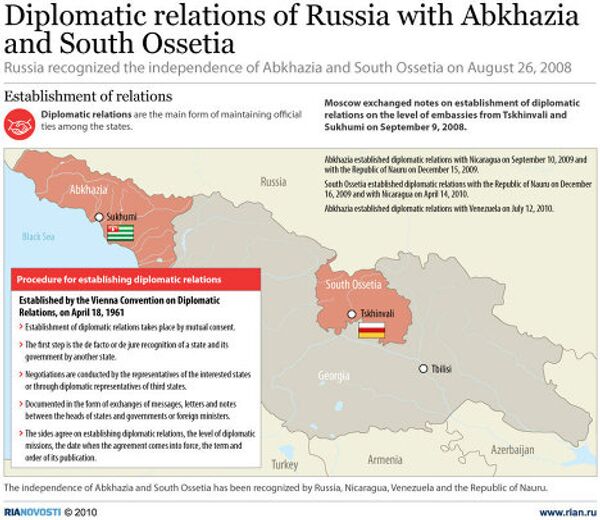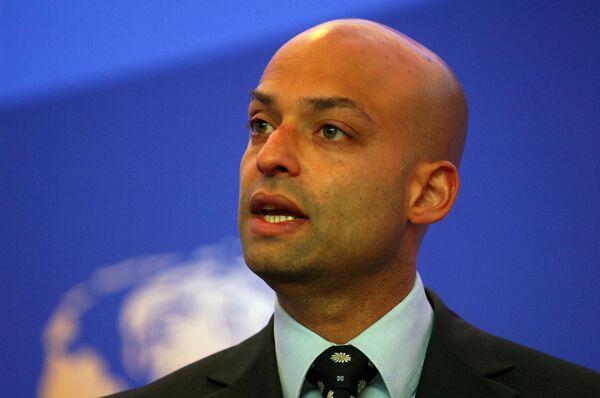TBILISI, June 3 (RIA Novosti) - NATO is concerned by the situation on the Georgia-South Ossetia border, where Russian forces put up wire fences along the border last week, NATO's envoy for the South Caucasus and Central Asia James Appathurai said on Monday.
Georgia protested last Monday over the setting up of barbed wire fence by Russian border forces along its border with the disputed region of South Ossetia.
The building of illegal dividing structures is a violation of existing agreements and impedes the free movement of people, Appathurai said.
Last Wednesday, EU observers condemned construction of barbed wire fences on the administrative border between Georgia and South Ossetia as unacceptable, and said it may destabilize the situation in the region.
Russia’s Foreign Ministry released a letter on Monday condemning what is said were attempts “to stoke up the situation” on the border between South Ossetia and Georgia with an eye to the election campaign in Georgia, and “shifting the blame” to Russia.
Under an interstate agreement with Russia signed on April 30, 2009, South Ossetia delegated its state border protection functions to Russia until the republic establishes its own border guard service. South Ossetia’s border with Georgia is about 210 miles (350 km) long.

Georgia lost control over one-fifth of its territory after South Ossetia and Abkhazia, another former republic within Georgia, broke away and were recognized by Moscow in the wake of a brief war with Russia in August 2008.
Both regions had enjoyed de facto independence since the early 1990s, following earlier conflicts with Georgia. Georgia repeatedly accused Moscow of aiding separatist movements in Abkhazia and South Ossetia at that time.
Moscow provides the breakaway republics with economic and military support and has recognized their independence, along with a handful of other countries. Most countries do not recognize South Ossetia or Abkhazia as independent states, but view them as part of Georgia.
Updated with Russian Foreign Ministry reaction in para 4


